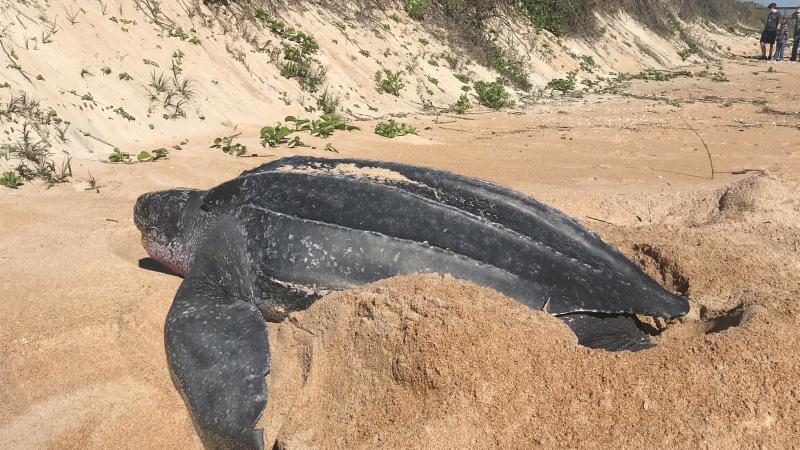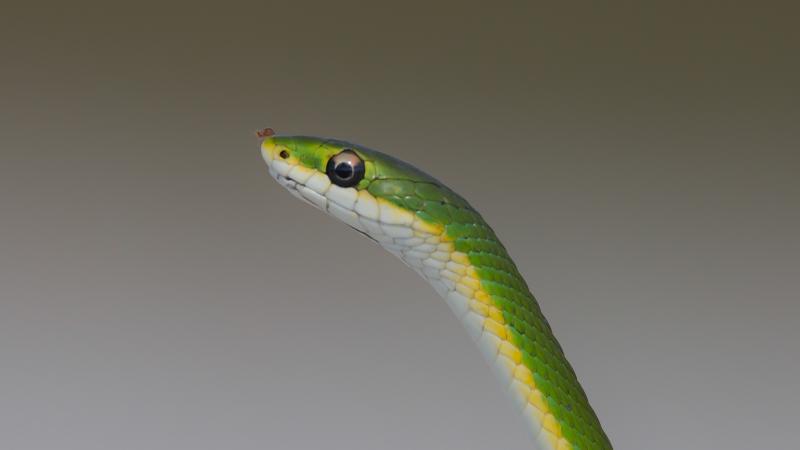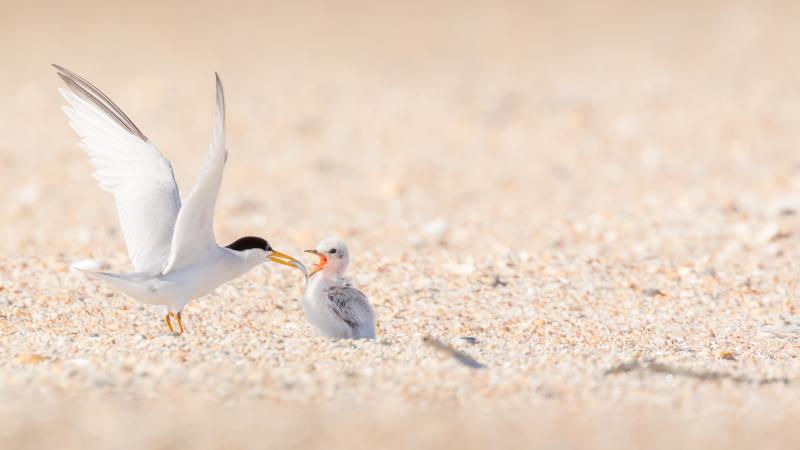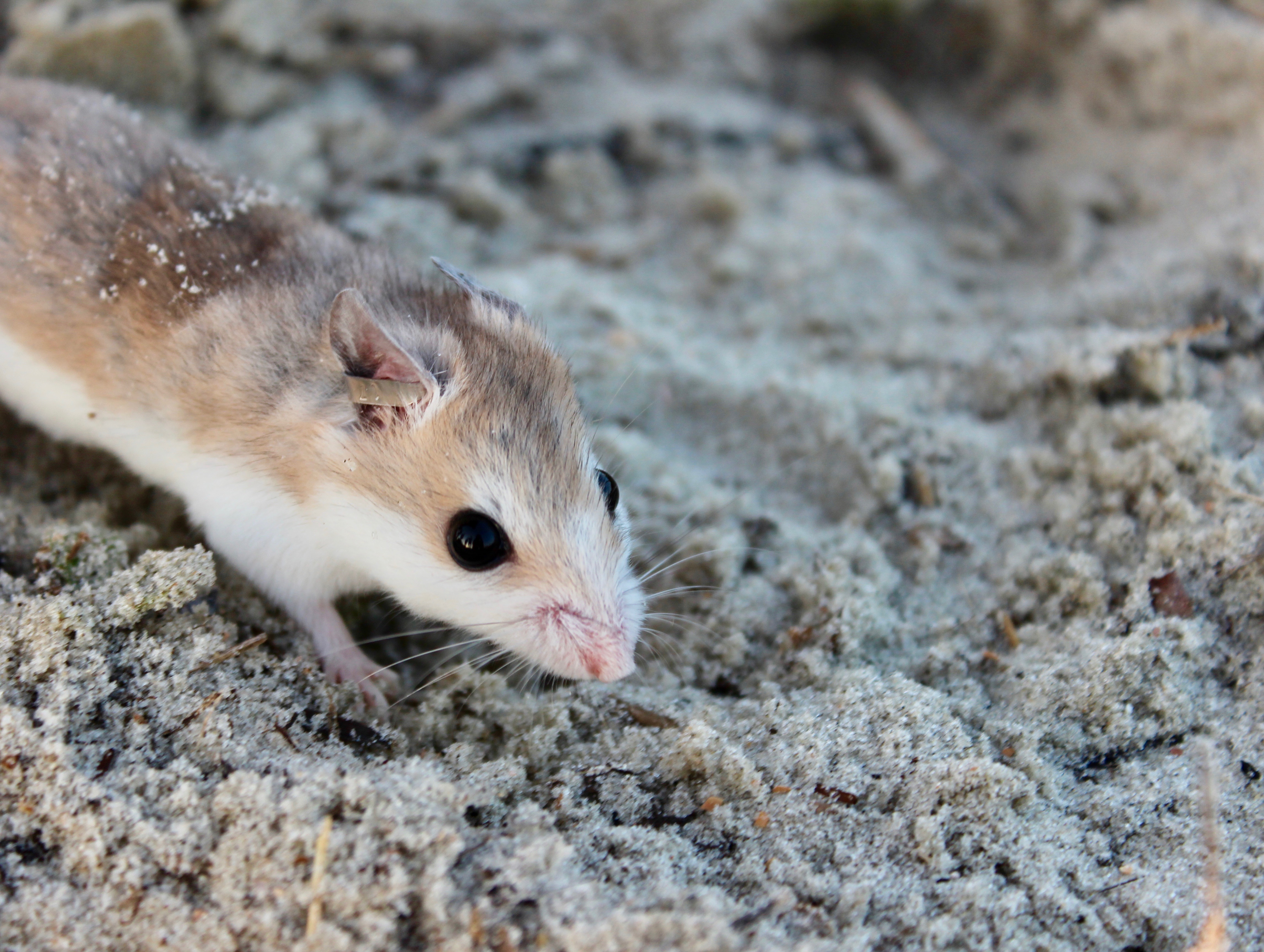
Anastasia Island Beach Mouse
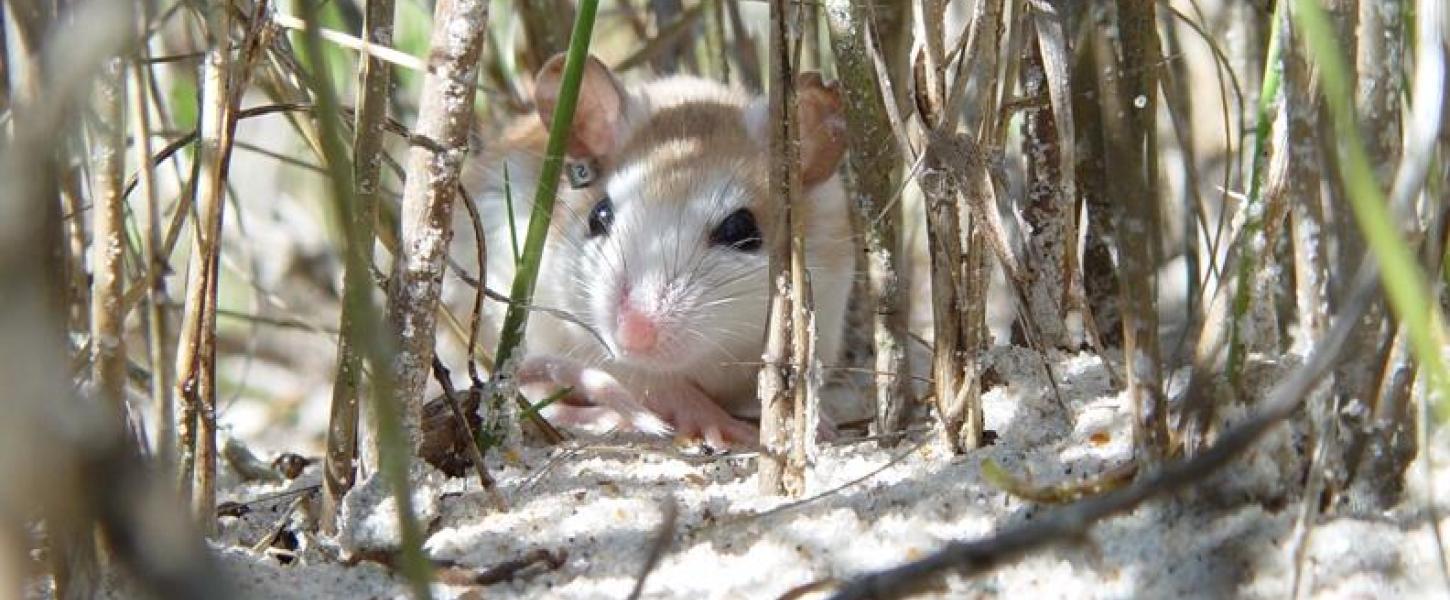

Among the dunes and foliage of the beach is where the federally endangered Anastasia Island beach mouse (Peromyscus polionotus phasma) calls home.
Marked with a light buff-colored back, pure white underside, and indistinct white markings on their face, this adorable creature has become this park’s unofficial mascot.
Anastasia State Park provides habitat for the largest population of Anastasia Island beach mice on public lands. In fact, this elusive creature is endemic to this area, which means it can only be found on Anastasia Island.
The Anastasia Island beach mouse is listed as endangered due to the loss of the habitat that it needs to survive. Historically, Anastasia Island beach mice could be found on about 50 linear miles of beach habitat on Anastasia Island; currently, they are restricted to about four linear miles of that habitat.
The greatest threat facing them is continued habitat loss and degradation; predation by feral and/or free-roaming cats, hurricanes and tropical storms, and sea-level rise also threaten the continued survival of this animal.
Although it is nearly impossible to view this animal in action, you can most certainly view their work.
The diet of the Anastasia Island beach mouse consists of insects and the seeds and fruits of dune vegetation.
Thanks to the eating and burrowing habits of this special mouse, much of the vegetation on our beach’s dune can be thanks to this animal. This includes the protected dune-stabilizing plant, sea oats.
The Anastasia Island beach mouse promotes the park’s biodiversity and natural resources, as the park’s “engineer of the dunes.”
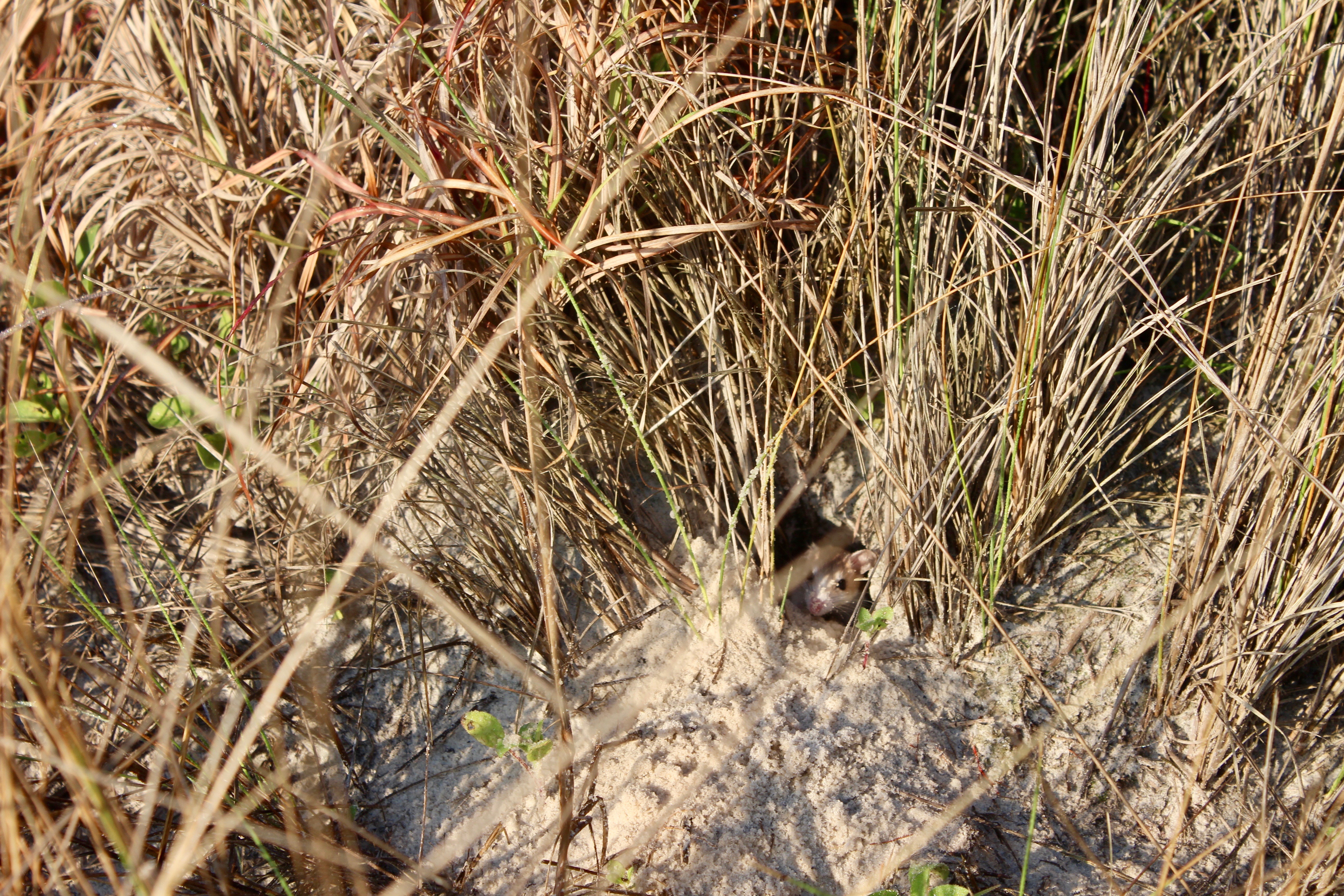
Ways to help the Anastasia Island Beach Mouse
- Keep your cats indoors. Not only does this protect beach mice, but it also protects your pets.
- Stay off the dunes and stick to established boardwalks and crossovers.
- Do not drive in the dunes or on the upper beach near dunes and dune vegetation.
- Keep outdoor lighting to a minimum.
- Don’t use rodenticides in or near dunes.
- Do not feed stray cats.
- Plant native plants around residences and businesses.
- Properly dispose of trash to keep predators away.
